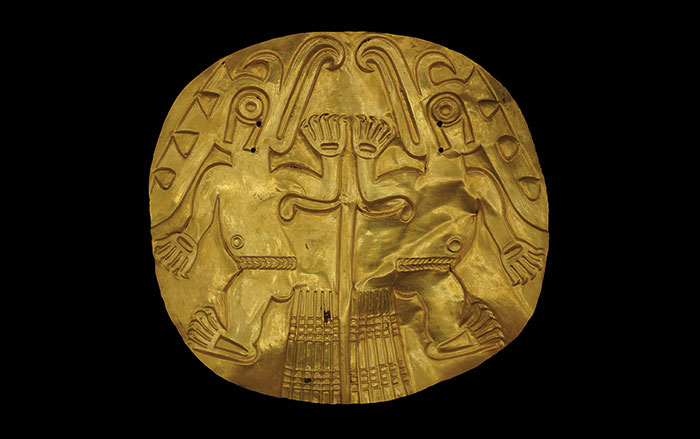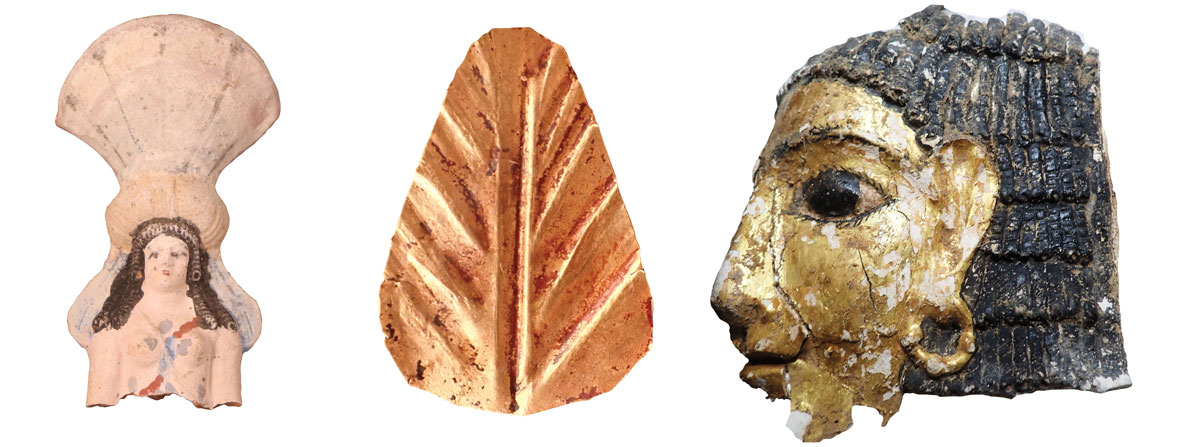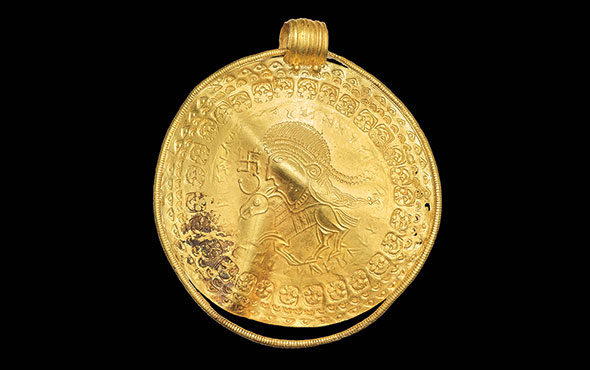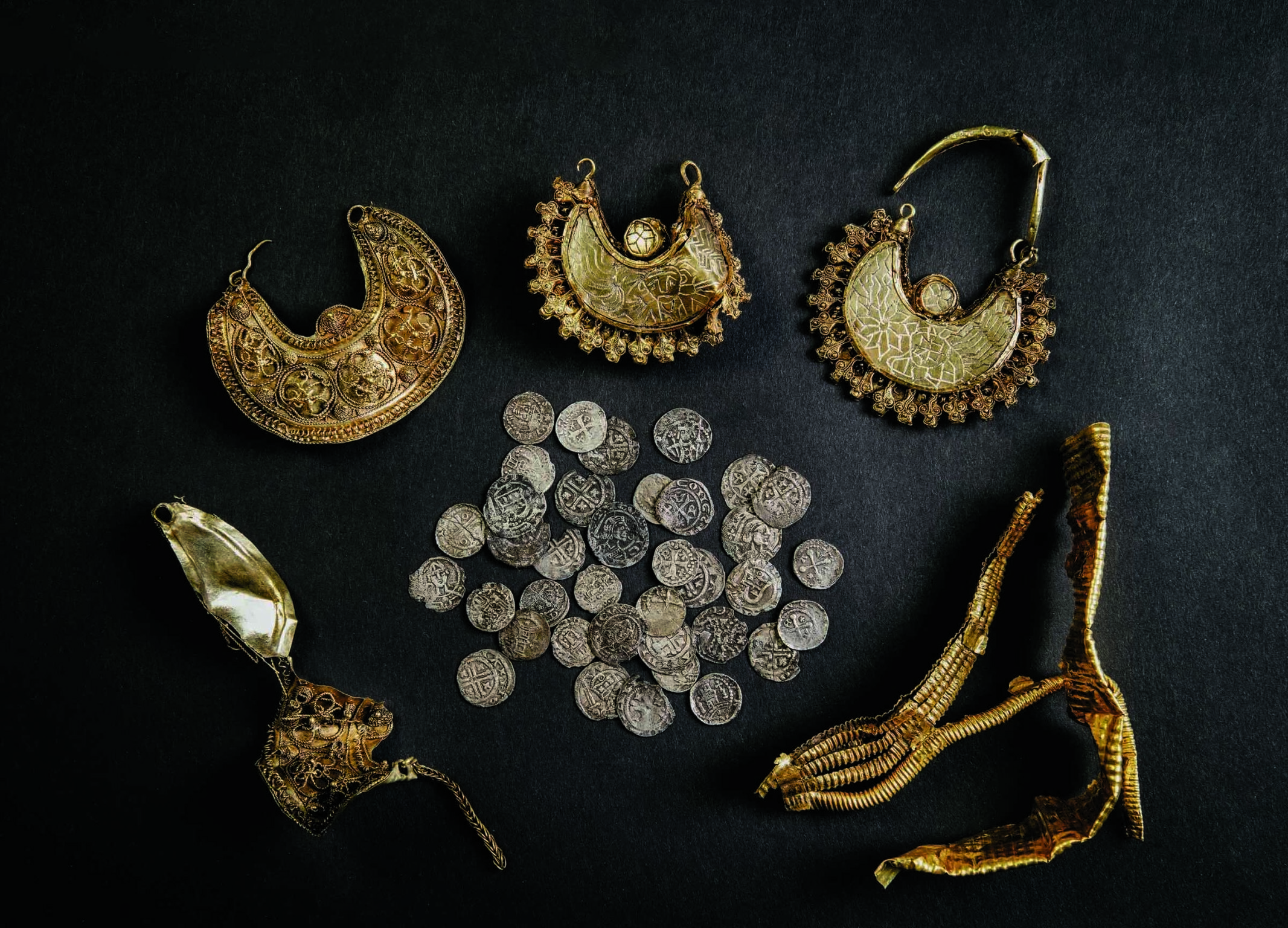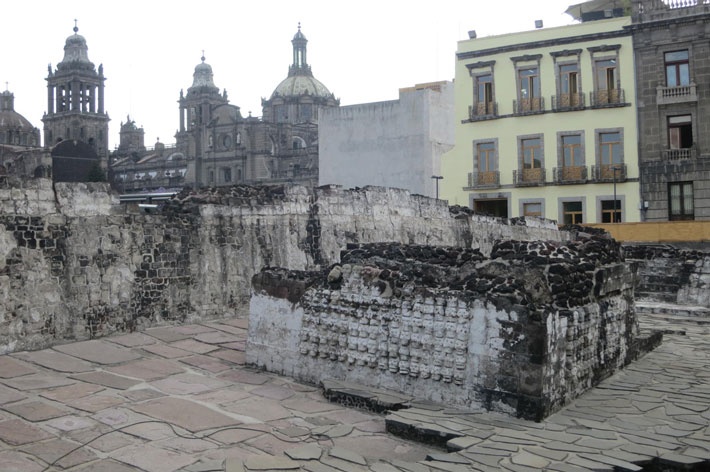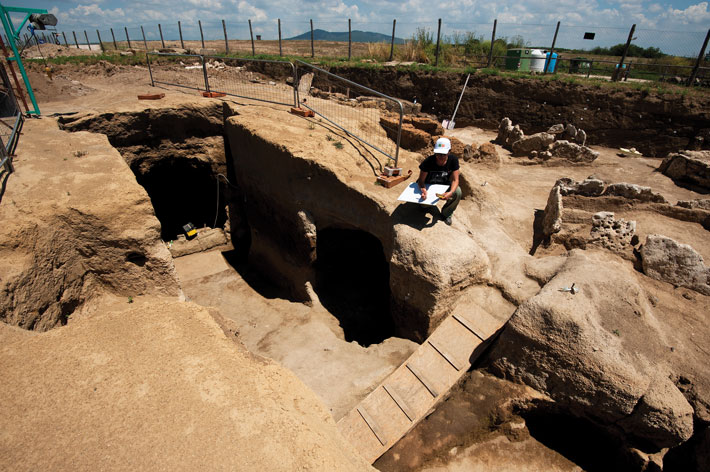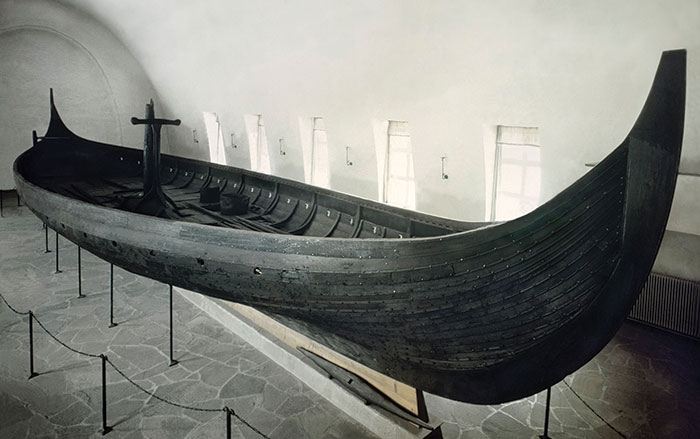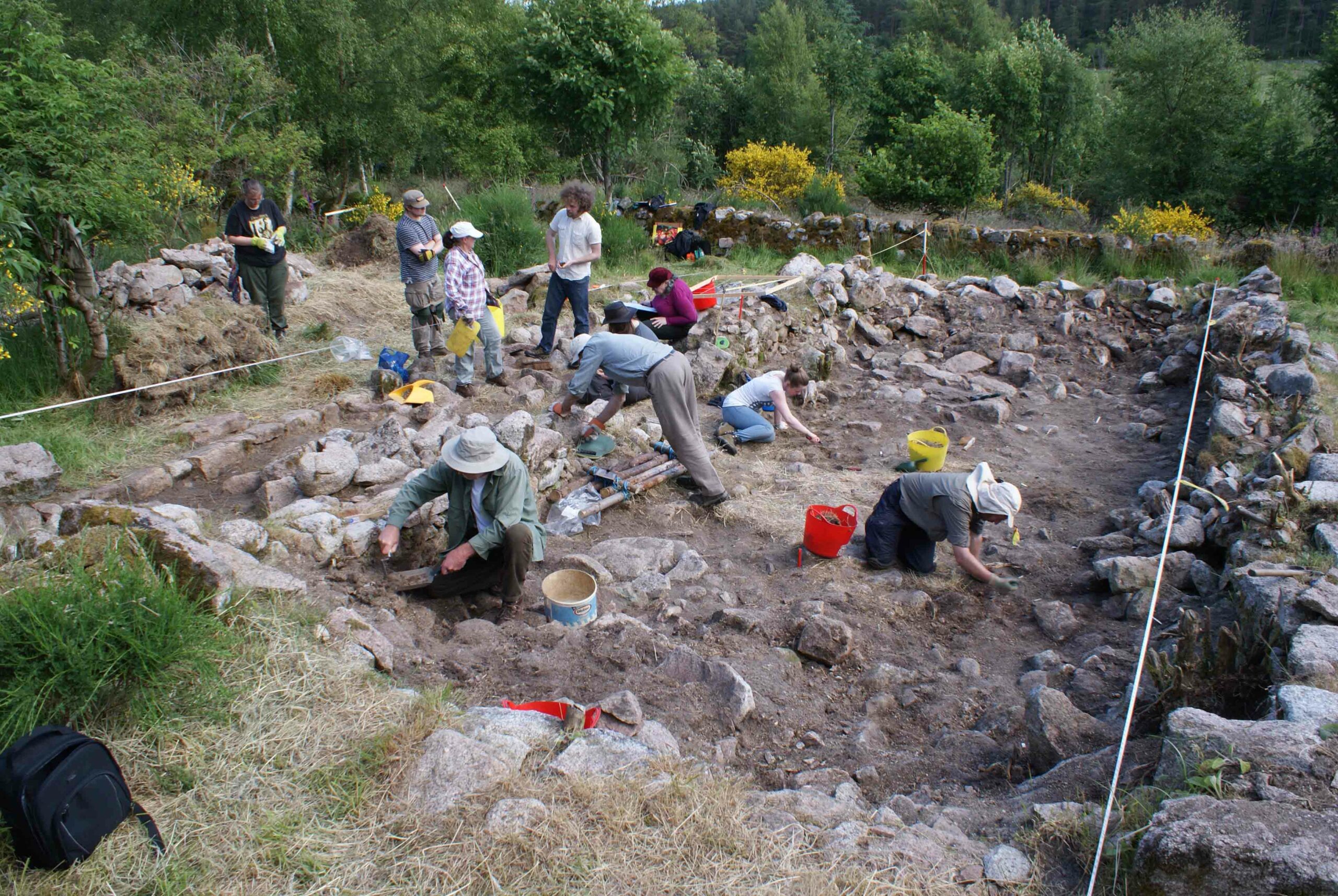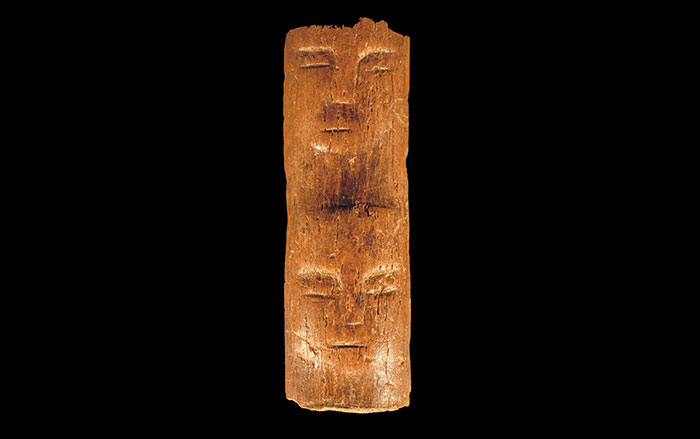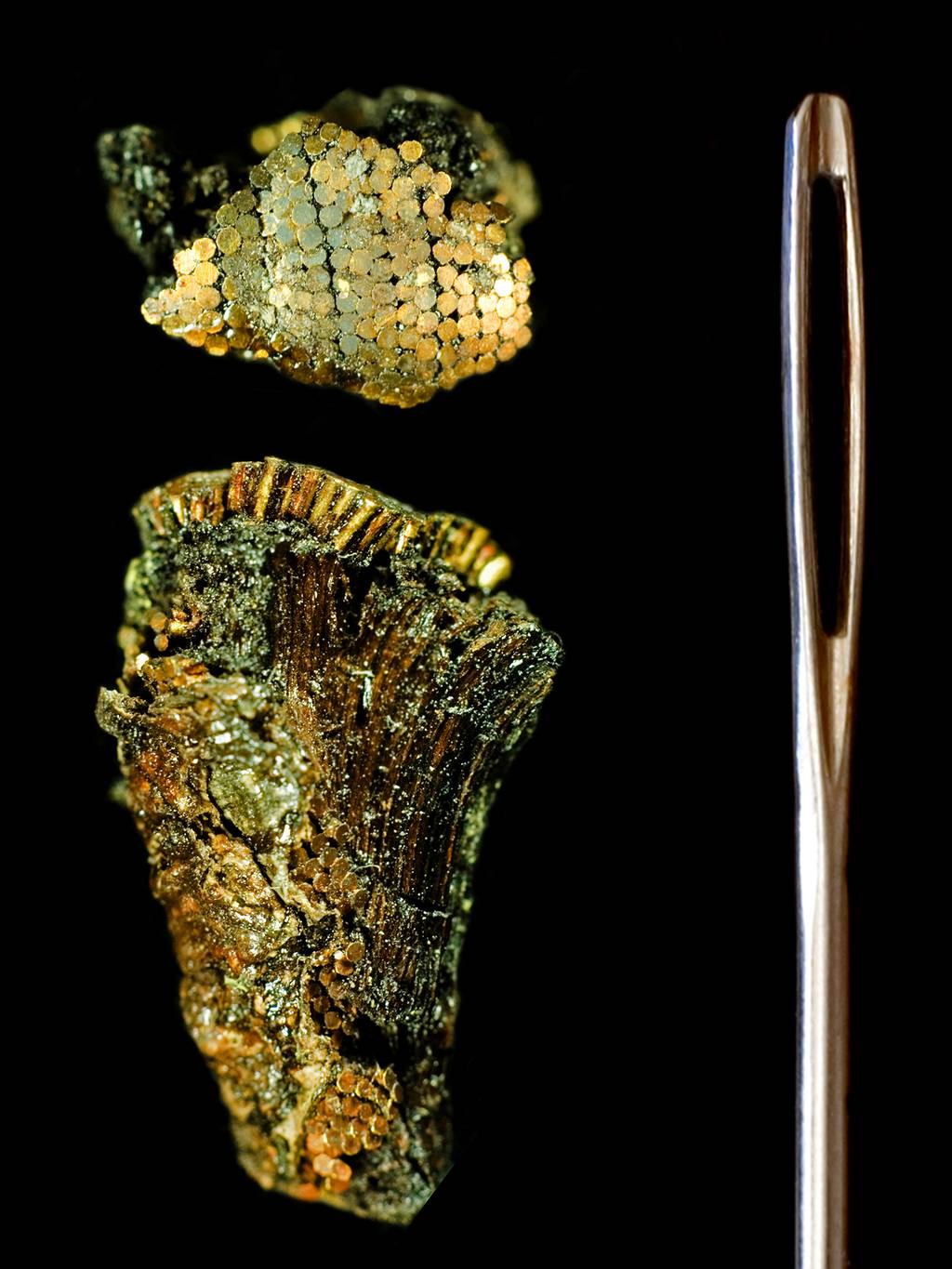
WILTSHIRE, ENGLAND—Researchers think children may have been responsible for embellishing the finely decorated weapons and jewelry discovered in the early nineteenth century at the Bush Barrow burial mound near Stonehenge, since sharp eyesight would have been required to cover a wooden dagger handle with 140,000 tiny gold pins. “Only children and teenagers, and those adults who had become myopic naturally or due to the nature of their work as children, would have been able to create and manufacture such tiny objects,” eye expert Ronald Rabbetts told The Guardian. The largest concentration of such decorated daggers has been found in northwestern France, where the children may have lived and worked. Rabbetts thinks that the gold workers would have eventually been disabled by their task. To read more about discoveries at Stonehenge, see ARCHAEOLOGY's "The Henge Builders."


